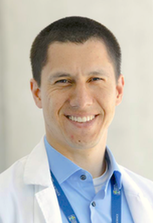
Luiz E. Bertassoni, DDS PhD
Associate Professor and Director, Knight Cancer Precision Biofabrication Hub
Division of Oncological Sciences, Knight Cancer Institute
Cancer Early Detection Advanced Research (CEDAR), Knight Cancer Institute
Department of Biomedical Engineering, OHSU School of Medicine
Oral Reahibilitation & Bioscieces, OHSU School of Dentistry
Dr. Luiz E. Bertassoni is the founding director of the Knight Cancer Precision Biofabrication Hub and Associate Professor at the Division of Oncological Sciences at the Knight Cancer Institute. He also holds appointments at the the Department of Biomedical Engineering, the Cancer Early Detection Advanced Research center (CEDAR) at the Knight Cancer Institute and the OHSU School of Dentistry. Dr. Bertassoni obtained a PhD in Biomaterials from University of Sydney, and was a postdoctoral researcher at UCSF, and subsequently at Harvard Medical School and MIT's joint program in Health Sciences and Technology. Dr. Bertassoni leads a multidisciplinary research group working on various aspects of micro-scale technologies, bioprinting and organs on-a-chip in cancer tissue engineering and regenerative medicine. Luiz has published over 100 manuscripts, including research papers, books and book chapters, and his work has appeared in high-impact journals, such as Nature Communications, Advanced Materials, Advanced Functional Materials. His work on vascular bioprinting was listed in the top 100 research stories by Discover Magazine, and his work has been broadly covered by the media. He is a recipient of over 30 national and international research awards, including the Medical Research Foundation New Investigator award, the IADR Centennial award, and the Silver Family Faculty Innovation award. He serves as a reviewer for over 60 peer reviewed international journals, and as associate editor/editorial board member for other 9 research journals. Dr. Bertassoni is also a co-founder of 2 biotech spin-off companies, HuMarrow and RegendoDent, which resulted from his work on cancer research and regenerative medicine.
Selected publications:
Associate Professor and Director, Knight Cancer Precision Biofabrication Hub
Division of Oncological Sciences, Knight Cancer Institute
Cancer Early Detection Advanced Research (CEDAR), Knight Cancer Institute
Department of Biomedical Engineering, OHSU School of Medicine
Oral Reahibilitation & Bioscieces, OHSU School of Dentistry
Dr. Luiz E. Bertassoni is the founding director of the Knight Cancer Precision Biofabrication Hub and Associate Professor at the Division of Oncological Sciences at the Knight Cancer Institute. He also holds appointments at the the Department of Biomedical Engineering, the Cancer Early Detection Advanced Research center (CEDAR) at the Knight Cancer Institute and the OHSU School of Dentistry. Dr. Bertassoni obtained a PhD in Biomaterials from University of Sydney, and was a postdoctoral researcher at UCSF, and subsequently at Harvard Medical School and MIT's joint program in Health Sciences and Technology. Dr. Bertassoni leads a multidisciplinary research group working on various aspects of micro-scale technologies, bioprinting and organs on-a-chip in cancer tissue engineering and regenerative medicine. Luiz has published over 100 manuscripts, including research papers, books and book chapters, and his work has appeared in high-impact journals, such as Nature Communications, Advanced Materials, Advanced Functional Materials. His work on vascular bioprinting was listed in the top 100 research stories by Discover Magazine, and his work has been broadly covered by the media. He is a recipient of over 30 national and international research awards, including the Medical Research Foundation New Investigator award, the IADR Centennial award, and the Silver Family Faculty Innovation award. He serves as a reviewer for over 60 peer reviewed international journals, and as associate editor/editorial board member for other 9 research journals. Dr. Bertassoni is also a co-founder of 2 biotech spin-off companies, HuMarrow and RegendoDent, which resulted from his work on cancer research and regenerative medicine.
Selected publications:
- Rapid fabrication of vascularized and innervated cell-laden bone models with biomimetic intrafibrillar collagen mineralization Nature communications 2019
- Bioprinting of complex multicellular organs with advanced functionality—Recent progress and challenges ahead Advanced Materials 2022
- 3D printing of microgel‐loaded modular microcages as instructive scaffolds for tissue engineering Advanced Materials 2020
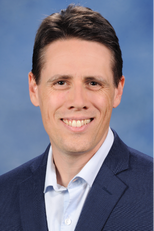
Alex Davies, DVM PhD
Senior Scientist
Cancer Early Detection Advanced Research (CEDAR), Knight Cancer Institute
Core Member, Knight Cancer Precision Biofabrication Hub
Dr. Alexander Davies graduated with a Ph.D. in Biochemistry and Molecular Biology and a D.V.M., with an interest in comparative oncology, from the University of California, Davis. He then completed a post-doctoral fellowship in cancer biology at Lawrence Berkeley National Laboratory before joining The Ohio State University as faculty in the Department of Veterinary Biosciences. While at OSU he was a member of the Comprehensive Cancer Center and faculty in the Cancer Biology and Cancer Engineering programs. Currently, Dr. Davies is a Senior Scientist at the OHSU Knight Cancer Institute’s Cancer Early Detection Advanced Research Center (CEDAR) where his work focuses on dynamic tumor-microenvironment signaling cross-talk, signal integration, and the development of 3D organotypic and tissue models to study these interactions using live-cell microscopy techniques.
Selected publications:
Senior Scientist
Cancer Early Detection Advanced Research (CEDAR), Knight Cancer Institute
Core Member, Knight Cancer Precision Biofabrication Hub
Dr. Alexander Davies graduated with a Ph.D. in Biochemistry and Molecular Biology and a D.V.M., with an interest in comparative oncology, from the University of California, Davis. He then completed a post-doctoral fellowship in cancer biology at Lawrence Berkeley National Laboratory before joining The Ohio State University as faculty in the Department of Veterinary Biosciences. While at OSU he was a member of the Comprehensive Cancer Center and faculty in the Cancer Biology and Cancer Engineering programs. Currently, Dr. Davies is a Senior Scientist at the OHSU Knight Cancer Institute’s Cancer Early Detection Advanced Research Center (CEDAR) where his work focuses on dynamic tumor-microenvironment signaling cross-talk, signal integration, and the development of 3D organotypic and tissue models to study these interactions using live-cell microscopy techniques.
Selected publications:
- Systems-level properties of EGFR-RAS-ERK signaling amplify local signals to generate dynamic gene expression heterogeneity. Cell systems 2020
- Tumour exosome integrins determine organotropic metastasis. Nature . 2015
- Extracellular vesicle and particle biomarkers define multiple human cancers. Cell 2020
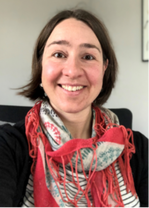
Rebekka Duhen, PhD
Senior Scientist
Cancer Early Detection Advanced Research (CEDAR), Knight Cancer Institute
Core Member, Knight Cancer Precision Biofabrication Hub
Rebekka Duhen is a Senior Scientist at CEDAR, Knight Cancer Institute. Her research is focused on the role and use of immune cells, T cells in particular, in early cancer detection. Rebekka received her diploma from the Technical University of Dresden, Germany and received her Ph.D from the University of Bern and the Institute for Research in Biomedicine, in Bellinzona, Switzerland, where she studied ways to assess the human T cell repertoire and assisted in the identification of the Th22 skin-homing T cell subset. Following her Ph.D, Rebekka joined the Benaroya Research Institute in Seattle, WA from 2010-2015 to help define the role of pathogenic T cells in EAE. From 2015-2022 she worked as a scientist at the EACRI at the Providence Cancer Institute in Portland, OR where she examined the role of CD4 and CD8 T cells in tumors and contributed to the identification of tumor-reactive T cell subsets. She is very excited to bring her expertise in both human and mouse T cell immunology to CEDAR and to develop new strategies using the immune system and/or its signatures to improve early cancer detection approaches. Understanding and visualizing the interaction of immune cells in 3-D tissue models will open completely new avenues in understanding the early development of tumor lesions and possibilities to intercept these changes.
Selected publications:
Senior Scientist
Cancer Early Detection Advanced Research (CEDAR), Knight Cancer Institute
Core Member, Knight Cancer Precision Biofabrication Hub
Rebekka Duhen is a Senior Scientist at CEDAR, Knight Cancer Institute. Her research is focused on the role and use of immune cells, T cells in particular, in early cancer detection. Rebekka received her diploma from the Technical University of Dresden, Germany and received her Ph.D from the University of Bern and the Institute for Research in Biomedicine, in Bellinzona, Switzerland, where she studied ways to assess the human T cell repertoire and assisted in the identification of the Th22 skin-homing T cell subset. Following her Ph.D, Rebekka joined the Benaroya Research Institute in Seattle, WA from 2010-2015 to help define the role of pathogenic T cells in EAE. From 2015-2022 she worked as a scientist at the EACRI at the Providence Cancer Institute in Portland, OR where she examined the role of CD4 and CD8 T cells in tumors and contributed to the identification of tumor-reactive T cell subsets. She is very excited to bring her expertise in both human and mouse T cell immunology to CEDAR and to develop new strategies using the immune system and/or its signatures to improve early cancer detection approaches. Understanding and visualizing the interaction of immune cells in 3-D tissue models will open completely new avenues in understanding the early development of tumor lesions and possibilities to intercept these changes.
Selected publications:
- Neoadjuvant anti-OX40 (MEDI6469) therapy in patients with head and neck squamous cell carcinoma activates and expands antigen-specific tumor-infiltrating T cells Nature Communications 2021
- Co-expression of CD39 and CD103 identifies tumor-reactive CD8 T cells in human solid tumors Nature Communications 2018
- T cell immunotherapies engage neutrophils to eliminate tumor antigen escape variants Cell 2023
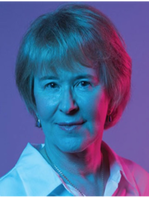
Beverly Emerson, PhD
Distinguished Professor
Cancer Early Detection Advanced Research (CEDAR), Knight Cancer Institute
Co-Director, Knight Cancer Precision Biofabrication Hub
Emerson directed a research laboratory at the Salk Institute in the field of gene regulation, focusing on mechanisms of chromatin restructuring and epigenetic programming. Her work led to unexpected discoveries underlying p53 function, aberrant gene silencing, COX-2 modulation of inflammation, and drug-resistance in human cancers. Recent work with human breast tissue revealed novel mechanisms of the stress response that may promote early cancer formation. Beverly Emerson has served in leadership roles as a member of the board of several non-profit organizations, organizer of major scientific conferences, and as elected Chair of the Salk Institute Faculty. Beverly Emerson helps mentor major research initiatives and contributes to formulating innovative scientific directions, in addition to co-directing the Knight Cancer Precision Biofabrication Hub at CEDAR.
Selected publications:
Distinguished Professor
Cancer Early Detection Advanced Research (CEDAR), Knight Cancer Institute
Co-Director, Knight Cancer Precision Biofabrication Hub
Emerson directed a research laboratory at the Salk Institute in the field of gene regulation, focusing on mechanisms of chromatin restructuring and epigenetic programming. Her work led to unexpected discoveries underlying p53 function, aberrant gene silencing, COX-2 modulation of inflammation, and drug-resistance in human cancers. Recent work with human breast tissue revealed novel mechanisms of the stress response that may promote early cancer formation. Beverly Emerson has served in leadership roles as a member of the board of several non-profit organizations, organizer of major scientific conferences, and as elected Chair of the Salk Institute Faculty. Beverly Emerson helps mentor major research initiatives and contributes to formulating innovative scientific directions, in addition to co-directing the Knight Cancer Precision Biofabrication Hub at CEDAR.
Selected publications:
- Dynamic regulation of CTCF stability and subnuclear localization in response to stress PLOS Genetics 2021
- Genome-wide targeting of the epigenetic regulatory protein ctcf to gene promoters by the transcription factor TFII-I PNAS 2014
- P50-associated COX-2 Extragenic RNA (pacer) activates human COX-2 gene expression by occluding repressive NF-κB p50 complexes. eLife 2014
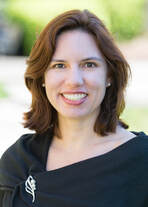
Cristiane Miranda França, DDS, MS, PhD
Research Assistant Professor
Department of Oral Reahibilitation & Bioscieces, OHSU School of Dentistry
Cancer Early Detection Advanced Research (CEDAR), Knight Cancer Institute
Core member, Knight Cancer Precision Biofabrication Hub
Dr. Cristiane Miranda Franca is a clinician-scientist with a Ph.D. in Oral Pathology and post-doctoral training in Tissue Engineering and Microfluidics. She currently serves as a Research Assistant Professor at the School of Dentistry and at the Knight Cancer Precision Biofabrication Hub within the Cancer Early Detection Advanced Research Center (CEDAR) at Oregon Health & Science University (OHSU). Her research journey has been consistently fortified by funding support from the NIH and foundational grants. Her expertise spans pathology, tissue engineering, organs-on-a-chip, and biomaterials. She operates at the interface of engineering and biology to unravel and potentially intercept the complex interactions among cancer cells, the extracellular matrix, lymphatic vessels, and local immune responses. Her research objectives include: (1) utilizing tissue engineering tools to develop immunomodulatory materials that harness the body's innate healing capacity, (2) understanding and potentially controlling cancer cell interactions with vasculature, especially lymphatic capillaries and (3) developing and utilizing innovative organs-on-a-chip platforms tailored for disease modeling. Dr. Franca has more than 80 publications in peer-reviewed journals, is a recipient of an NIH-K01 award, and is committed to nurturing the next generation of scientists and clinicians within a lab culture founded on principles of excellence, innovation, integrity, diversity, cooperation, and respect.
Selected publications:
Research Assistant Professor
Department of Oral Reahibilitation & Bioscieces, OHSU School of Dentistry
Cancer Early Detection Advanced Research (CEDAR), Knight Cancer Institute
Core member, Knight Cancer Precision Biofabrication Hub
Dr. Cristiane Miranda Franca is a clinician-scientist with a Ph.D. in Oral Pathology and post-doctoral training in Tissue Engineering and Microfluidics. She currently serves as a Research Assistant Professor at the School of Dentistry and at the Knight Cancer Precision Biofabrication Hub within the Cancer Early Detection Advanced Research Center (CEDAR) at Oregon Health & Science University (OHSU). Her research journey has been consistently fortified by funding support from the NIH and foundational grants. Her expertise spans pathology, tissue engineering, organs-on-a-chip, and biomaterials. She operates at the interface of engineering and biology to unravel and potentially intercept the complex interactions among cancer cells, the extracellular matrix, lymphatic vessels, and local immune responses. Her research objectives include: (1) utilizing tissue engineering tools to develop immunomodulatory materials that harness the body's innate healing capacity, (2) understanding and potentially controlling cancer cell interactions with vasculature, especially lymphatic capillaries and (3) developing and utilizing innovative organs-on-a-chip platforms tailored for disease modeling. Dr. Franca has more than 80 publications in peer-reviewed journals, is a recipient of an NIH-K01 award, and is committed to nurturing the next generation of scientists and clinicians within a lab culture founded on principles of excellence, innovation, integrity, diversity, cooperation, and respect.
Selected publications:
- High‐Throughput Bioprinting of Geometrically‐Controlled Pre‐Vascularized Injectable Microgels for Accelerated Tissue Regeneration. Advanced Healthcare Materials 2023
- Challenges and Perspectives on the Use of Pericytes in Tissue Engineering. Current Tissue Microenvironment Reports 2022
- The influence of osteopontin‐guided collagen intrafibrillar mineralization on pericyte differentiation and vascularization of engineered bone scaffolds. Journal of Biomedical Materials Research Part B 2018
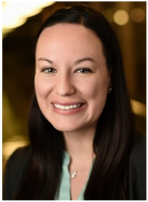
Carolyn Schutt Ibsen, PhD
Assistant Professor
Cancer Early Detection Advanced Research (CEDAR), Knight Cancer Institute
Department of Biomedical Engineering, OHSU School of Medicine
Core Member, Knight Cancer Precision Biofabrication Hub
Dr. Carolyn Schutt Ibsen's research group is focused on developing energy-responsive biomaterial platforms for tumor modeling and regenerative medicine. We have a particular interest in stimuli-responsive materials that can be controlled remotely and noninvasively using ultrasound. Our efforts include developing dynamic tissue-engineered platforms to model cancer progression in response to oncogenic stimuli. We also engineer responsive biomaterial systems to guide tissue repair and regeneration. Our work lies at the intersection of nanomaterials design, tissue engineering, gene/drug
delivery and ultrasound physics. We are committed to fostering a lab culture that supports diversity, equity and inclusion and training the next generation of scientists through dedicated mentorship.
Selected publications:
Assistant Professor
Cancer Early Detection Advanced Research (CEDAR), Knight Cancer Institute
Department of Biomedical Engineering, OHSU School of Medicine
Core Member, Knight Cancer Precision Biofabrication Hub
Dr. Carolyn Schutt Ibsen's research group is focused on developing energy-responsive biomaterial platforms for tumor modeling and regenerative medicine. We have a particular interest in stimuli-responsive materials that can be controlled remotely and noninvasively using ultrasound. Our efforts include developing dynamic tissue-engineered platforms to model cancer progression in response to oncogenic stimuli. We also engineer responsive biomaterial systems to guide tissue repair and regeneration. Our work lies at the intersection of nanomaterials design, tissue engineering, gene/drug
delivery and ultrasound physics. We are committed to fostering a lab culture that supports diversity, equity and inclusion and training the next generation of scientists through dedicated mentorship.
Selected publications:
- Stimuli‐Responsive Biomaterials: Scaffolds for Stem Cell Control. Advanced Healthcare Materials. 2021
- Microbubble–Nanoparticle Complexes for Ultrasound-Enhanced Cargo Delivery. Pharmaceutics. 2022
- Ultrasound‐Triggered Enzymatic Gelation. Advanced Materials. 2020
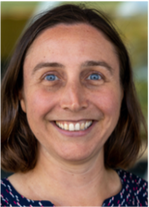
Ellen M. Langer, PhD
Dr. Langer received her Ph.D. in Molecular Cell Biology from Washington University in St. Louis and completed
postdoctoral training at Washington University, University of Utah, and OHSU. Dr. Langer’s major research interest is in identifying mechanisms of cellular plasticity in both neoplastic and non-neoplastic stromal cells, and understanding how interactions between these dynamic populations impact early tumor development and progression. To support these investigations, she co-led the development of manipulable, heterotypic, in vitro tumor models using an extrusion-based bioprinting approach. Current work in her group uses 2-dimensional tissue culture, 3-dimensional bioprinted tissues, and mouse models to determine how crosstalk between heterogeneous tumor cells and their microenvironment changes during early tumor development. Long term, her work aims to leverage this knowledge to prevent, detect, and target early stage breast and pancreatic cancer
Selected publications:
- Assistant Professor,
- Division of Oncological Sciences, OHSU School of Medicine
- Cancer Early Detection Advanced Research (CEDAR), Knight Cancer Institute
- Member, Brenden-Colson Center for Pancreatic Care, School of Medicine
Dr. Langer received her Ph.D. in Molecular Cell Biology from Washington University in St. Louis and completed
postdoctoral training at Washington University, University of Utah, and OHSU. Dr. Langer’s major research interest is in identifying mechanisms of cellular plasticity in both neoplastic and non-neoplastic stromal cells, and understanding how interactions between these dynamic populations impact early tumor development and progression. To support these investigations, she co-led the development of manipulable, heterotypic, in vitro tumor models using an extrusion-based bioprinting approach. Current work in her group uses 2-dimensional tissue culture, 3-dimensional bioprinted tissues, and mouse models to determine how crosstalk between heterogeneous tumor cells and their microenvironment changes during early tumor development. Long term, her work aims to leverage this knowledge to prevent, detect, and target early stage breast and pancreatic cancer
Selected publications:
- Modeling Tumor Phenotypes In Vitro with Three-Dimensional Bioprinting. Cell Reports 2019
- Differentiation-state plasticity is a targetable resistance mechanism in basal-like breast cancer. Nature Communications 2018
- Sulfopin is a covalent inhibitor of Pin1 that blocks Myc-driven tumors in vivo. Nature Chemical Biology 2021
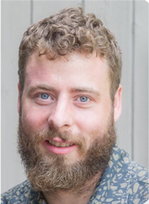
Joshua Moreau, PhD
Joshua Moreau is an Assistant Professor in the Division of Oncological Sciences, Department of Dermatology, Department of Cell, Developmental & Cancer Biology, and a member of CEDAR. He aims to explore the earliest interactions between cancer and the immune system, within the tissues where cancer cells arise. A major research focus is to understand how tissue resident lymphocytes in barrier organs integrate microenvironmental signals to orchestrate anti-cancer immunity. Combining multiomic approaches with functional immunology, his work investigates the basic biology of tissue resident lymphocytes and the role of these cells during cancer pathogenesis.
Selected publications:
- Assistant Professor
- Division of Oncological Sciences, OHSU School of Medicine
- Department of Dermatology, OHSU School of Medicine
- Department of Cell, Developmental & Cancer Biology, OHSU School of Medicine
- Cancer Early Detection Advanced Research (CEDAR), Knight Cancer Institute
- Core Member, Knight Cancer Precision Biofabrication Hub
Joshua Moreau is an Assistant Professor in the Division of Oncological Sciences, Department of Dermatology, Department of Cell, Developmental & Cancer Biology, and a member of CEDAR. He aims to explore the earliest interactions between cancer and the immune system, within the tissues where cancer cells arise. A major research focus is to understand how tissue resident lymphocytes in barrier organs integrate microenvironmental signals to orchestrate anti-cancer immunity. Combining multiomic approaches with functional immunology, his work investigates the basic biology of tissue resident lymphocytes and the role of these cells during cancer pathogenesis.
Selected publications:
- Transforming Growth Factor β in Treg Biology. Science Immunology. 2022
- Regulatory T cells promote innate inflammation following skin barrier breach via TGF- β activation. Science Immunology. 2021
- Tertiary lymphoid structures sustain cutaneous B cell activity in hidradenitis suppurativa. bioRxiv 2023
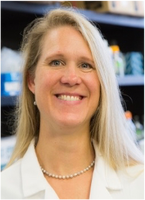
Rosalie Sears, PhD
Professor of Molecular and Medical Genetics, School of Medicine
Co-Director, Brenden-Colson Center for Pancreatic Care, School of Medicine
Krista L. Lake Chair in Cancer Research
Core Member, Knight Cancer Precision Biofabrication Hub
Dr. Sears received her Bachelor’s degree in Biology from Reed College (1986), Portland Oregon. She received her Ph.D. in Cell Biology from Vanderbilt University (1993), Nashville Tennessee, and conducted her post-doctoral studies at Duke University in the Genetics Department. Dr. Sears is a full professor in the Department of Molecular and Medical Genetics at Oregon Health & Science University. She is Co-Director of the Brenden-Colson Center for Pancreatic Care and a senior member in the Knight Cancer Institute. Dr. Sears has received funding from the National Institutes of Health, the Department of Defense, the Susan G. Komen Foundation, the Leukemia and Lymphoma Foundation, as well as several other private foundations. She has received both research and business innovation awards in the areas of cancer biology, therapeutics, and technology advancement. The Sears lab studies cellular signaling pathways that control tumor cell behavior, with a focus on their convergence on the c-Myc oncoprotein and how this impacts Myc’s expression, activity, and its regulation of cell fate. Myc is constitutively overexpressed in the majority of human tumors and studies have demonstrated that this affects both tumor cell state (proliferation, differentiation, metabolism) as well as cross-talk with the tumor microenvironment affecting immune surveillance and vasculature. Dr. Sears’ work has identified a complex signaling pathway that coordinately post-translationally regulates c-Myc’s DNA binding and transcriptional activity with its turnover via ubiquitin-mediated proteolysis and she has demonstrated that c-Myc is post-translationally stabilized with increased activity in the majority of human tumors. The Sears lab has modeled post-translational activation of c-Myc in genetically engineered mice, where they have developed accurate mouse models of human breast and pancreatic cancer. Dr. Sears’ lab is pursuing new therapeutic strategies to target Myc by reversing its post-translational activation. This work has lead to the development of a new small molecule activator of the tumor suppressor phosphatase PP2A. This drug is orally available and has demonstrated dramatic inhibition of tumor growth and significant extension of survival in mouse breast and pancreas cancer models.
Selected publications:
Professor of Molecular and Medical Genetics, School of Medicine
Co-Director, Brenden-Colson Center for Pancreatic Care, School of Medicine
Krista L. Lake Chair in Cancer Research
Core Member, Knight Cancer Precision Biofabrication Hub
Dr. Sears received her Bachelor’s degree in Biology from Reed College (1986), Portland Oregon. She received her Ph.D. in Cell Biology from Vanderbilt University (1993), Nashville Tennessee, and conducted her post-doctoral studies at Duke University in the Genetics Department. Dr. Sears is a full professor in the Department of Molecular and Medical Genetics at Oregon Health & Science University. She is Co-Director of the Brenden-Colson Center for Pancreatic Care and a senior member in the Knight Cancer Institute. Dr. Sears has received funding from the National Institutes of Health, the Department of Defense, the Susan G. Komen Foundation, the Leukemia and Lymphoma Foundation, as well as several other private foundations. She has received both research and business innovation awards in the areas of cancer biology, therapeutics, and technology advancement. The Sears lab studies cellular signaling pathways that control tumor cell behavior, with a focus on their convergence on the c-Myc oncoprotein and how this impacts Myc’s expression, activity, and its regulation of cell fate. Myc is constitutively overexpressed in the majority of human tumors and studies have demonstrated that this affects both tumor cell state (proliferation, differentiation, metabolism) as well as cross-talk with the tumor microenvironment affecting immune surveillance and vasculature. Dr. Sears’ work has identified a complex signaling pathway that coordinately post-translationally regulates c-Myc’s DNA binding and transcriptional activity with its turnover via ubiquitin-mediated proteolysis and she has demonstrated that c-Myc is post-translationally stabilized with increased activity in the majority of human tumors. The Sears lab has modeled post-translational activation of c-Myc in genetically engineered mice, where they have developed accurate mouse models of human breast and pancreatic cancer. Dr. Sears’ lab is pursuing new therapeutic strategies to target Myc by reversing its post-translational activation. This work has lead to the development of a new small molecule activator of the tumor suppressor phosphatase PP2A. This drug is orally available and has demonstrated dramatic inhibition of tumor growth and significant extension of survival in mouse breast and pancreas cancer models.
Selected publications:
- Deconstructing pancreatic adenocarcinoma by targeting the conductor, MYC. Cancer Discovery 2020
- Modeling Tumor Phenotypes In Vitro with Three-Dimensional Bioprinting. Cell Reports 2019
- Targeting c-MYC by antagonizing PP2A inhibitors in breast cancer. PNAS 2014
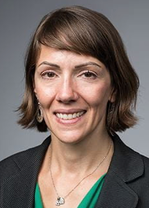
Danielle Benoit, PhD
Lorry Lokey Chair, Department of Bioengineering, University of Oregon, Knight Campus
Affiliate member, Knight Cancer Precision Biofabrication Hub
Danielle Benoit is the inaugural Lorry Lokey Chair of the Department of Bioengineering. Her research specializes in the rational design of polymeric materials for regenerative medicine and drug delivery applications. Dr. Benoit’s work has provided insights into the translation of tissue engineering strategies for bone allograft repair, development of pH-responsive nanoparticles for nucleic acid and small molecule delivery, and novel targeting strategies for bone-specific delivery of therapeutics.Benoit received her Ph.D. from the University of Colorado and completed her postdoctoral fellowship at the University of Washington in the Department of Bioengineering. She holds a B.S. from the University of Maine, Orono, in Biological Engineering. Before joining the Knight Campus, Benoit served as the University of Rochester’s William R. Kenan, Jr. Distinguished Professor in the Department of Biomedical Engineering and Director of the Materials Science Program. An award-winning researcher, teacher, and mentor, she is a fellow of the American Institute of Medical and Biological Engineering and the Biomedical Engineering Society, as well as an Associate Editor for Science Advances and the Journal of Biomedical Materials Research Part B. As chair, Benoit plays an instrumental role in continued development of the Department of Bioengineering, including shaping and maturing the research and educational portfolio, coordinating fundraising, outreach, and alumni and industry relations, and hiring of approximately 15 new faculty as Phase 2 of the Knight Campus is completed. These efforts will be critical to advancing the Knight Campus mission of translating research discoveries into innovations to improve the human condition.
Lorry Lokey Chair, Department of Bioengineering, University of Oregon, Knight Campus
Affiliate member, Knight Cancer Precision Biofabrication Hub
Danielle Benoit is the inaugural Lorry Lokey Chair of the Department of Bioengineering. Her research specializes in the rational design of polymeric materials for regenerative medicine and drug delivery applications. Dr. Benoit’s work has provided insights into the translation of tissue engineering strategies for bone allograft repair, development of pH-responsive nanoparticles for nucleic acid and small molecule delivery, and novel targeting strategies for bone-specific delivery of therapeutics.Benoit received her Ph.D. from the University of Colorado and completed her postdoctoral fellowship at the University of Washington in the Department of Bioengineering. She holds a B.S. from the University of Maine, Orono, in Biological Engineering. Before joining the Knight Campus, Benoit served as the University of Rochester’s William R. Kenan, Jr. Distinguished Professor in the Department of Biomedical Engineering and Director of the Materials Science Program. An award-winning researcher, teacher, and mentor, she is a fellow of the American Institute of Medical and Biological Engineering and the Biomedical Engineering Society, as well as an Associate Editor for Science Advances and the Journal of Biomedical Materials Research Part B. As chair, Benoit plays an instrumental role in continued development of the Department of Bioengineering, including shaping and maturing the research and educational portfolio, coordinating fundraising, outreach, and alumni and industry relations, and hiring of approximately 15 new faculty as Phase 2 of the Knight Campus is completed. These efforts will be critical to advancing the Knight Campus mission of translating research discoveries into innovations to improve the human condition.
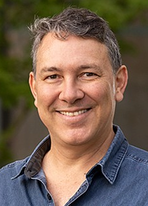
Paul Dalton, PhD
Associate Professor, University of Oregon, Knight Campus
Bradshaw and Holzapfel Research Professor in Transformational Science and Mathematics
Affiliate member, Knight Cancer Precision Biofabrication Hub
Paul Dalton is the Bradshaw and Holzapfel Research Professor in Transformational Science and Mathematics. He undertook graduate studies as part of a bioengineering team at the Lions Eye Institute, Perth, Australia that successfully took an artificial cornea from concept to the clinic. His career has an international perspective, with post-docs at the University of Toronto and RWTH-Aachen followed by research scientist positions at the University of Southampton, England and Shanghai Jiao Tong University, China. He invented and developed melt electrowriting as a distinct class within 3D-printing with the Queensland University of Technology and has over 25 years’ experience across several disciplines.He was the first biofabrication professor in Germany and brought the melt electrowriting technology to Europe. Since then, this high-resolution 3D-printing technology has spread to over 25 European laboratories, researched for osteochondral plugs, renal tubes, artificial blood vessels and nerve regeneration. Over five companies have integrated this technique into their bioprinters. He was originally educated as a materials scientist, but attained interdisciplinary experience in diverse areas of the biomaterial development pipeline. At the Knight Campus, he uses melt electrowriting to fabricate new, advanced, biomaterials that can be translated to clinical applications. Paul has published over 100 research articles in journals that include Advanced Materials Progress in Polymer Science and Nature Materials.
Associate Professor, University of Oregon, Knight Campus
Bradshaw and Holzapfel Research Professor in Transformational Science and Mathematics
Affiliate member, Knight Cancer Precision Biofabrication Hub
Paul Dalton is the Bradshaw and Holzapfel Research Professor in Transformational Science and Mathematics. He undertook graduate studies as part of a bioengineering team at the Lions Eye Institute, Perth, Australia that successfully took an artificial cornea from concept to the clinic. His career has an international perspective, with post-docs at the University of Toronto and RWTH-Aachen followed by research scientist positions at the University of Southampton, England and Shanghai Jiao Tong University, China. He invented and developed melt electrowriting as a distinct class within 3D-printing with the Queensland University of Technology and has over 25 years’ experience across several disciplines.He was the first biofabrication professor in Germany and brought the melt electrowriting technology to Europe. Since then, this high-resolution 3D-printing technology has spread to over 25 European laboratories, researched for osteochondral plugs, renal tubes, artificial blood vessels and nerve regeneration. Over five companies have integrated this technique into their bioprinters. He was originally educated as a materials scientist, but attained interdisciplinary experience in diverse areas of the biomaterial development pipeline. At the Knight Campus, he uses melt electrowriting to fabricate new, advanced, biomaterials that can be translated to clinical applications. Paul has published over 100 research articles in journals that include Advanced Materials Progress in Polymer Science and Nature Materials.
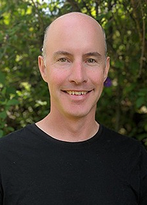
Tim Gardner, PhD
Associate Professor, University of Oregon, Knight Campus
Robert and Leona DeArmond Chair in neuroengineering
Affiliate member, Knight Cancer Precision Biofabrication Hub
Tim Gardner is an associate professor of neuroengineering and Robert & Leona DeArmond Chair in the Department of Bioengineering at the Knight Campus. His research involves songbirds, which provide a model system for studying neural circuit dynamics. Researchers in the Gardner Lab record from singing birds and develop deep-learning-based computational methods to study vocal behavior and neural activity patterns during singing. In this process, the group addresses fundamental questions about how neural circuits self-organize and how trial and error learning builds skilled motor behaviors. Prior to joining the Knight Campus, Gardner worked as a founding member of Neuralink Corp., a company building a fully implanted bidirectional interface to the human brain. He holds a bachelor’s degree in physics from Princeton University and earned his doctorate in biology and physics at Rockefeller University. He completed his post-doctoral fellowships at Rockefeller University and the Massachusetts Institute of Technology.
Associate Professor, University of Oregon, Knight Campus
Robert and Leona DeArmond Chair in neuroengineering
Affiliate member, Knight Cancer Precision Biofabrication Hub
Tim Gardner is an associate professor of neuroengineering and Robert & Leona DeArmond Chair in the Department of Bioengineering at the Knight Campus. His research involves songbirds, which provide a model system for studying neural circuit dynamics. Researchers in the Gardner Lab record from singing birds and develop deep-learning-based computational methods to study vocal behavior and neural activity patterns during singing. In this process, the group addresses fundamental questions about how neural circuits self-organize and how trial and error learning builds skilled motor behaviors. Prior to joining the Knight Campus, Gardner worked as a founding member of Neuralink Corp., a company building a fully implanted bidirectional interface to the human brain. He holds a bachelor’s degree in physics from Princeton University and earned his doctorate in biology and physics at Rockefeller University. He completed his post-doctoral fellowships at Rockefeller University and the Massachusetts Institute of Technology.
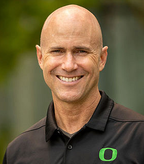
Robert E. Guldberg, MS, PhD
Vice President and Leona DeArmond Executive Director of the Knight Campus for Accelerating Scientific Impact at the University of Oregon
Affiliate member, Knight Cancer Precision Biofabrication Hub
Robert E. Guldberg is the DeArmond Executive Director of the Phil and Penny Knight Campus for Accelerating Scientific Impact and Vice President of the University of Oregon. Guldberg’s research is focused on musculoskeletal mechanobiology, regenerative medicine, and orthopaedic medical devices. Over his 25+ year academic career, Dr. Guldberg has produced over 280 peer-reviewed publications, served as an advisor and board member for numerous biotechnology companies, and co-founded six start-ups. He was previously executive director of the Parker H. Petit Institute for Bioengineering and Bioscience at Georgia Tech from 2009-2018. In 2018, he was selected from a national search to lead the Knight Campus as its inaugural permanent Executive Director, where he has led the creation of its strategic plan, hired faculty into the campus’ first building opened in 2020, and launched the University of Oregon’s first ever engineering degree program. In 2021, he led the launch of Phase 2 of the Knight Campus development with the announcement of a second $500 million gift from Phil and Penny Knight. At the national level, Dr. Guldberg is past Chair of the Americas Chapter of the Tissue Engineering and Regenerative Medicine International Society (TERMIS-AM). He currently serves on the Executive Leadership Council of the Wu Tsai Human Performance Alliance, a $220 million global initiative to promote wellness and peak performance through scientific discovery and innovation. Dr. Guldberg is an elected fellow of TERMIS, the American Society of Mechanical Engineers (ASME), the American Institute for Medical and Biological Engineering (AIMBE), the Orthopaedic Research Society (ORS), and the National Academy of Inventors (NAI).
Vice President and Leona DeArmond Executive Director of the Knight Campus for Accelerating Scientific Impact at the University of Oregon
Affiliate member, Knight Cancer Precision Biofabrication Hub
Robert E. Guldberg is the DeArmond Executive Director of the Phil and Penny Knight Campus for Accelerating Scientific Impact and Vice President of the University of Oregon. Guldberg’s research is focused on musculoskeletal mechanobiology, regenerative medicine, and orthopaedic medical devices. Over his 25+ year academic career, Dr. Guldberg has produced over 280 peer-reviewed publications, served as an advisor and board member for numerous biotechnology companies, and co-founded six start-ups. He was previously executive director of the Parker H. Petit Institute for Bioengineering and Bioscience at Georgia Tech from 2009-2018. In 2018, he was selected from a national search to lead the Knight Campus as its inaugural permanent Executive Director, where he has led the creation of its strategic plan, hired faculty into the campus’ first building opened in 2020, and launched the University of Oregon’s first ever engineering degree program. In 2021, he led the launch of Phase 2 of the Knight Campus development with the announcement of a second $500 million gift from Phil and Penny Knight. At the national level, Dr. Guldberg is past Chair of the Americas Chapter of the Tissue Engineering and Regenerative Medicine International Society (TERMIS-AM). He currently serves on the Executive Leadership Council of the Wu Tsai Human Performance Alliance, a $220 million global initiative to promote wellness and peak performance through scientific discovery and innovation. Dr. Guldberg is an elected fellow of TERMIS, the American Society of Mechanical Engineers (ASME), the American Institute for Medical and Biological Engineering (AIMBE), the Orthopaedic Research Society (ORS), and the National Academy of Inventors (NAI).
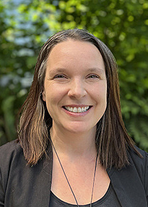
Gabriella Lindberg, PhD
Assistant Professor, University of Oregon, Knight Campus
Affiliate member, Knight Cancer Precision Biofabrication Hub
Gabriella Lindberg completed her master’s degree in biotechnology and tissue engineering at Chalmers University of Technology in Sweden. Passionate about developing new generation biomaterials, she worked at a spin-off medical device company for four years before she moved to New Zealand to pursue a PhD in biomedical engineering at the University of Otago. She later completed a two years post-doc and was promoted to Research Fellow in 2019 in the Christchurch Regenerative Medicine and Tissue Engineering (CReaTE) Group. Her research is focused on the design of cell-instructive hydrogels, bioinks, and bioresins that mimic the native architectural organization and biological niche of musculoskeletal tissues, capable of adapting to the constantly changing micro-environment as new tissue is forming. Through controlled delivery of cells, growth factors and oxygen, she is progressing the clinical relevance of bioinks, establishing structure-to-function relationships, and further advancing 3D-models to highlight patient-to-patient variability and model disease progression and implant integration. Her research is part of larger collaborative projects involving both national and international collaborators in the likes of New Zealand, Germany, Netherlands and Australia. She holds a New Zealand Health Research Council Emerging Researcher Grant and has also won several other awards such as the International Society of Biofabrication (ISBF) young investigator award in 2019, the Consortium for Medical Device Technologies (CMDT) and the Medical Technologies Centre of Research Excellence (MedTech CoRE) award also in 2019, and University of Otago’s integrity award in 2017.
Assistant Professor, University of Oregon, Knight Campus
Affiliate member, Knight Cancer Precision Biofabrication Hub
Gabriella Lindberg completed her master’s degree in biotechnology and tissue engineering at Chalmers University of Technology in Sweden. Passionate about developing new generation biomaterials, she worked at a spin-off medical device company for four years before she moved to New Zealand to pursue a PhD in biomedical engineering at the University of Otago. She later completed a two years post-doc and was promoted to Research Fellow in 2019 in the Christchurch Regenerative Medicine and Tissue Engineering (CReaTE) Group. Her research is focused on the design of cell-instructive hydrogels, bioinks, and bioresins that mimic the native architectural organization and biological niche of musculoskeletal tissues, capable of adapting to the constantly changing micro-environment as new tissue is forming. Through controlled delivery of cells, growth factors and oxygen, she is progressing the clinical relevance of bioinks, establishing structure-to-function relationships, and further advancing 3D-models to highlight patient-to-patient variability and model disease progression and implant integration. Her research is part of larger collaborative projects involving both national and international collaborators in the likes of New Zealand, Germany, Netherlands and Australia. She holds a New Zealand Health Research Council Emerging Researcher Grant and has also won several other awards such as the International Society of Biofabrication (ISBF) young investigator award in 2019, the Consortium for Medical Device Technologies (CMDT) and the Medical Technologies Centre of Research Excellence (MedTech CoRE) award also in 2019, and University of Otago’s integrity award in 2017.
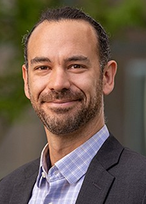
Nick Willet, PhD
Associate Professor, University of Oregon, Knight Campus
Affiliate member, Knight Cancer Precision Biofabrication Hub
Nick Willett research focuses on a systems integration approach to musculoskeletal disease and regenerative and rehabilitation engineering by applying novel imaging and engineering techniques to clinically motivated challenges. His current work is focused on: cell and biologic therapies for the healing of large bone and muscle defects, multi-scale mechanical regulation of bone regeneration, and intra-articular therapeutic delivery and rehabilitation for post-traumatic osteoarthritis. His research sits at the interface between engineering and clinical disciplines. Willett comes to the Knight Campus from Emory University, where he serves as an associate professor in the Department of Orthopaedics. Willett performed his postdoctoral training at Georgia Tech in mechanical engineering. He received his PhD in 2010 in biomedical engineering from a joint program between Georgia Tech and Emory University. Prior to his graduate work, he received his B.S. in 2005 in mechanical engineering from the University of Colorado at Boulder.
Associate Professor, University of Oregon, Knight Campus
Affiliate member, Knight Cancer Precision Biofabrication Hub
Nick Willett research focuses on a systems integration approach to musculoskeletal disease and regenerative and rehabilitation engineering by applying novel imaging and engineering techniques to clinically motivated challenges. His current work is focused on: cell and biologic therapies for the healing of large bone and muscle defects, multi-scale mechanical regulation of bone regeneration, and intra-articular therapeutic delivery and rehabilitation for post-traumatic osteoarthritis. His research sits at the interface between engineering and clinical disciplines. Willett comes to the Knight Campus from Emory University, where he serves as an associate professor in the Department of Orthopaedics. Willett performed his postdoctoral training at Georgia Tech in mechanical engineering. He received his PhD in 2010 in biomedical engineering from a joint program between Georgia Tech and Emory University. Prior to his graduate work, he received his B.S. in 2005 in mechanical engineering from the University of Colorado at Boulder.
Technical Staff
Postdoctoral Fellows
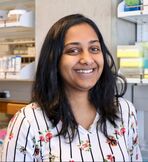
Avathamsa Athirasala, PhD
Avathamsa is a postdoctoral researcher with Knight Cancer Precision Biofabrication Hub focused on developing precision engineered tissue models to understand the role of mechanical signaling in the microenvironment on cancer progression. Her academic training consists of a Bachelors degree in chemical engineering from Osmania University, India. This was followed by a Masters degree from the University of Pennsylvania, where she studied mechanotransductive pathways in stem cell differentiation and cancer. She also received a PhD in Biomedical Engineering from OHSU for employing tissue engineering and biofabrication techniques to understand the effects of microenvironment stiffness and geometry on tissue behavior. Outside of her research interests, Avathamsa enjoys hiking and traveling with her extended family.
Avathamsa is a postdoctoral researcher with Knight Cancer Precision Biofabrication Hub focused on developing precision engineered tissue models to understand the role of mechanical signaling in the microenvironment on cancer progression. Her academic training consists of a Bachelors degree in chemical engineering from Osmania University, India. This was followed by a Masters degree from the University of Pennsylvania, where she studied mechanotransductive pathways in stem cell differentiation and cancer. She also received a PhD in Biomedical Engineering from OHSU for employing tissue engineering and biofabrication techniques to understand the effects of microenvironment stiffness and geometry on tissue behavior. Outside of her research interests, Avathamsa enjoys hiking and traveling with her extended family.
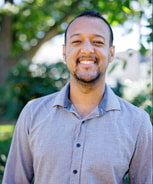
Mauricio Gonçalves da Costa Sousa, DDS, MS, PhD
Mauricio Gonçalves da Costa Sousa is a postdoctoral researcher at the Knight Cancer Precision Biofabrication Hub. He is also a fellow of the T90/R90 (NIDCR) training grant at the School of Dentistry (OHSU). He received his BSE in dentistry in 2014 at the Catholic University of Brasilia, a Master’s in health sciences in 2017 at the University of Brasilia, and a Ph.D. in Genomic Sciences and Biotechnology at the Catholic University of Brasilia. His major interests include oral biology, bone biology, tissue engineering, cellular communication, host-microbiome interactions in cancer, and organs on-a-chip.
Mauricio Gonçalves da Costa Sousa is a postdoctoral researcher at the Knight Cancer Precision Biofabrication Hub. He is also a fellow of the T90/R90 (NIDCR) training grant at the School of Dentistry (OHSU). He received his BSE in dentistry in 2014 at the Catholic University of Brasilia, a Master’s in health sciences in 2017 at the University of Brasilia, and a Ph.D. in Genomic Sciences and Biotechnology at the Catholic University of Brasilia. His major interests include oral biology, bone biology, tissue engineering, cellular communication, host-microbiome interactions in cancer, and organs on-a-chip.
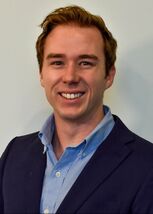
Jake Fredrikson, PhD
Jake is a postdoctoral researcher at the Knight Cancer Precision Biofabrication Hub and a member of the Department of Oral Rehabilitation and Biosciences in the School of Dentistry. He received his B.S. in Chemical Engineering from the University of Washington in 2018 and his Ph.D. in Chemical and Biological Engineering in 2023 from Montana State University. During his Ph.D., he was a member of the Chang Soft Matter and Microfluidics Lab, where he developed drop-based microfluidic tools to culture single neurons. His research interests include tissue engineering, microfluidics, and organs-on-a-chip.
Jake is a postdoctoral researcher at the Knight Cancer Precision Biofabrication Hub and a member of the Department of Oral Rehabilitation and Biosciences in the School of Dentistry. He received his B.S. in Chemical Engineering from the University of Washington in 2018 and his Ph.D. in Chemical and Biological Engineering in 2023 from Montana State University. During his Ph.D., he was a member of the Chang Soft Matter and Microfluidics Lab, where he developed drop-based microfluidic tools to culture single neurons. His research interests include tissue engineering, microfluidics, and organs-on-a-chip.
Research Engineers

Jameson Cosgrove, BS
Jameson Cosgrove holds a BS in Biology from Augustana University and an MS in Bioengineering from Oregon State University. Previously, he worked at a medical device startup where he designed and 3D printed patient-specific surgical rehearsal models. He is currently a Research Engineer at OHSU's Knight Cancer Biofabrication Hub. His research interests include medical device product development, 3D printing, and biomaterials.
Jameson Cosgrove holds a BS in Biology from Augustana University and an MS in Bioengineering from Oregon State University. Previously, he worked at a medical device startup where he designed and 3D printed patient-specific surgical rehearsal models. He is currently a Research Engineer at OHSU's Knight Cancer Biofabrication Hub. His research interests include medical device product development, 3D printing, and biomaterials.
Graduate Students
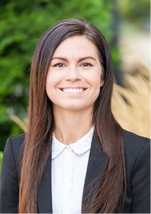
Haylie Helms, MS
Haylie Helms is a PhD candidate in Biomedical Engineering and International Alliance for Cancer Early Detection (ACED) fellow. Her research is focused on recreating tumors, with single cell spatial precision, to study cell-cell communication effects in the early tumor microenvironment. By systematically manipulating the cellular composition and arrangement of the tumor microenvironment we hope to uncover the fundamental biology of tumor initiation and progression. Prior to starting the PhD program, Haylie managed the 3D Bioprinting Core Facility at the University of Minnesota Twin Cities, served as the Panoskaltsis-Mortari lab manager, taught a graduate level 3D Bioprinting course, and led several independent research projects. She holds a bachelors in Biology from the University of Minnesota Twin Cities and a masters in Human Anatomy from the University of Colorado Anschutz Medical Campus.
Haylie Helms is a PhD candidate in Biomedical Engineering and International Alliance for Cancer Early Detection (ACED) fellow. Her research is focused on recreating tumors, with single cell spatial precision, to study cell-cell communication effects in the early tumor microenvironment. By systematically manipulating the cellular composition and arrangement of the tumor microenvironment we hope to uncover the fundamental biology of tumor initiation and progression. Prior to starting the PhD program, Haylie managed the 3D Bioprinting Core Facility at the University of Minnesota Twin Cities, served as the Panoskaltsis-Mortari lab manager, taught a graduate level 3D Bioprinting course, and led several independent research projects. She holds a bachelors in Biology from the University of Minnesota Twin Cities and a masters in Human Anatomy from the University of Colorado Anschutz Medical Campus.
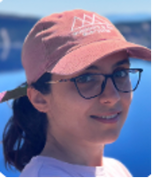
Mahshid Hosseini, MS
Mahshid Hosseini holds a Master's degree in Biomedical Engineering from the Sharif University of Technology, Iran, and a Bachelor's degree in Chemical Engineering from the University of Zanjan, Iran. Currently, she is a PhD student in the field of biomedical engineering at OHSU, working with Dr. Luiz Bertassoni. Her research interests primarily revolve around bone-on-chip systems, biomaterials, and drug delivery.
Mahshid Hosseini holds a Master's degree in Biomedical Engineering from the Sharif University of Technology, Iran, and a Bachelor's degree in Chemical Engineering from the University of Zanjan, Iran. Currently, she is a PhD student in the field of biomedical engineering at OHSU, working with Dr. Luiz Bertassoni. Her research interests primarily revolve around bone-on-chip systems, biomaterials, and drug delivery.
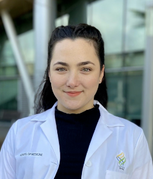
Sofia Vignolo, BSc
Sofia Vignolo received her Bachelor of Science in biomedical engineering from the University of Miami in 2018. Following graduation, she worked for two years as a research data manager at Boston Children's Hospital in the Precision Vaccines Program. In 2020, she joined the Medical Scientist Training Program at Oregon Health & Science University. She is currently in the PhD portion of the dual MD-PhD degree in the biomedical engineering graduate program. Her research interests are in craniofacial surgery and engineering, specifically bone regeneration.
Sofia Vignolo received her Bachelor of Science in biomedical engineering from the University of Miami in 2018. Following graduation, she worked for two years as a research data manager at Boston Children's Hospital in the Precision Vaccines Program. In 2020, she joined the Medical Scientist Training Program at Oregon Health & Science University. She is currently in the PhD portion of the dual MD-PhD degree in the biomedical engineering graduate program. Her research interests are in craniofacial surgery and engineering, specifically bone regeneration.

Walaa Abbas, MSc
Walaa Abbas is a graduate student in the Biomedical Engineering Program at Oregon Health and Science University (OHSU). Her research interests are in cancer nanomedicine, biomaterials, and drug delivery using biomedical engineering technologies and microfluidics models. She received her Bachelor of Science degree, Biotechnology major, from Cairo University and her Master of Science in Nanotechnology from the School of Sciences and Engineering at the American University in Cairo in 2018. Further, she received the Center for NanoScience Pre-doctoral Training Program in Nanomedicine from Ludwig Maximilian University Munich, Germany. She worked as a senior researcher and teaching assistant in the College of Science at the United Arab Emirates University. In her spare time, you can find her reading, walking, and volunteering.
Walaa Abbas is a graduate student in the Biomedical Engineering Program at Oregon Health and Science University (OHSU). Her research interests are in cancer nanomedicine, biomaterials, and drug delivery using biomedical engineering technologies and microfluidics models. She received her Bachelor of Science degree, Biotechnology major, from Cairo University and her Master of Science in Nanotechnology from the School of Sciences and Engineering at the American University in Cairo in 2018. Further, she received the Center for NanoScience Pre-doctoral Training Program in Nanomedicine from Ludwig Maximilian University Munich, Germany. She worked as a senior researcher and teaching assistant in the College of Science at the United Arab Emirates University. In her spare time, you can find her reading, walking, and volunteering.

Alec Gosiak, BSc
Alec Gosiak received a Batchelor of Science in Biology, with a molecular, cellular, and developmental emphasis, as well as a minor in biochemistry from the University of Oregon in 2014. Following graduation, he continued education and performed research studying genes required for photosynthesis in the lab of Dr. Alice Barkan before working several years in nanotechnology and 3D printing R&D as a staff scientist/materials chemist for Voxtel Inc/Nanovox LLC at the Center for Advanced Materials Characterization in Oregon and the Advanced Technologies and Manufacturing Institute. He joined OHSU in the summer of 2024 as a graduate student in the Biomedical Engineering program under the mentorship of Dr. Luiz Bertassoni. His interests include: nanobiotechnology, 3D bioprinting, tumor models, drug delivery, regenerative medicine, and early detection and interception of cancer.
Alec Gosiak received a Batchelor of Science in Biology, with a molecular, cellular, and developmental emphasis, as well as a minor in biochemistry from the University of Oregon in 2014. Following graduation, he continued education and performed research studying genes required for photosynthesis in the lab of Dr. Alice Barkan before working several years in nanotechnology and 3D printing R&D as a staff scientist/materials chemist for Voxtel Inc/Nanovox LLC at the Center for Advanced Materials Characterization in Oregon and the Advanced Technologies and Manufacturing Institute. He joined OHSU in the summer of 2024 as a graduate student in the Biomedical Engineering program under the mentorship of Dr. Luiz Bertassoni. His interests include: nanobiotechnology, 3D bioprinting, tumor models, drug delivery, regenerative medicine, and early detection and interception of cancer.
Senior Research Assistants
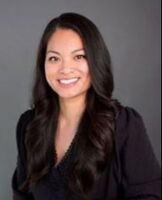
Anissa Bartolome, MS
Anissa Bartolome graduated with a M.S. in Biology emphasized in Biotechnology from New Mexico State University in 2016. She has five years of clinical experience working as a chairside dental assistant. She is currently a senior research assistant for OHSU's Knight Cancer Biofabrication Hub and OHSU School of Dentistry's Department of Oral Rehabilitation and Biosciences. Her research interests include the production of novel biomaterials and product development in the startup space.
Anissa Bartolome graduated with a M.S. in Biology emphasized in Biotechnology from New Mexico State University in 2016. She has five years of clinical experience working as a chairside dental assistant. She is currently a senior research assistant for OHSU's Knight Cancer Biofabrication Hub and OHSU School of Dentistry's Department of Oral Rehabilitation and Biosciences. Her research interests include the production of novel biomaterials and product development in the startup space.
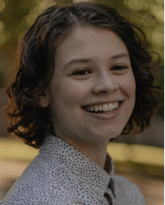
Morgan, Stewart, MS
Morgan Stewart joins CEDAR with a Master’s of Science in chemistry with specialization in molecular probes and sensors from the University of Oregon, and Bachelor’s of Science in biochemistry from Portland State University. They have research experience in a variety of subjects including the mechanisms of copper-induced cell death of E. coli, and sample prep methodologies for cryo focused ion beam and scanning electron microscopy (cryo FIB SEM) for biological samples. Morgan hopes to use their past experience and learn from their collaborators at CEDAR to advance the field of cancer research.
Morgan Stewart joins CEDAR with a Master’s of Science in chemistry with specialization in molecular probes and sensors from the University of Oregon, and Bachelor’s of Science in biochemistry from Portland State University. They have research experience in a variety of subjects including the mechanisms of copper-induced cell death of E. coli, and sample prep methodologies for cryo focused ion beam and scanning electron microscopy (cryo FIB SEM) for biological samples. Morgan hopes to use their past experience and learn from their collaborators at CEDAR to advance the field of cancer research.
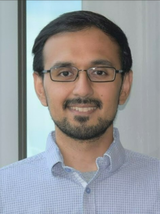
Anthony Tahayeri, BSc
Anthony Tahayeri graduated with a B.S. in Biological Engineering from Oregon State University. He is currently a senior research assistant in the Bertassoni lab located at Oregon Health Science University. His research interests include the development of manufacturing processes for biomaterial production and the development of biomedical devices as well as biomaterials.
Anthony Tahayeri graduated with a B.S. in Biological Engineering from Oregon State University. He is currently a senior research assistant in the Bertassoni lab located at Oregon Health Science University. His research interests include the development of manufacturing processes for biomaterial production and the development of biomedical devices as well as biomaterials.
Visiting Scholars
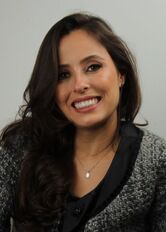
May Anny Alves Fraga, DDS, MSc
May Anny Alves Fraga obtained her DDS in Federal University of Espírito Santo, Brazil at 2017, and Master’s degree in Dental Materials at Piracicaba Dental School, State University of Campinas, Brazil. Currently, she is a current PhD student in Dental Materials at Piracicaba Dental School, State University of Campinas, Brazil. She worked on the development of biomaterials to increase the longevity of dental restorations. Where, developed bio-interactive and polymerization shrinkage stress-reducing materials. She joined the Bertassoni Lab at the Oregon Health and Science University in March 2023, as a visiting scholar. Her major research interests include tissue engineering, wound healing, tissue regeneration and biomaterials.
May Anny Alves Fraga obtained her DDS in Federal University of Espírito Santo, Brazil at 2017, and Master’s degree in Dental Materials at Piracicaba Dental School, State University of Campinas, Brazil. Currently, she is a current PhD student in Dental Materials at Piracicaba Dental School, State University of Campinas, Brazil. She worked on the development of biomaterials to increase the longevity of dental restorations. Where, developed bio-interactive and polymerization shrinkage stress-reducing materials. She joined the Bertassoni Lab at the Oregon Health and Science University in March 2023, as a visiting scholar. Her major research interests include tissue engineering, wound healing, tissue regeneration and biomaterials.
Research Project Manager
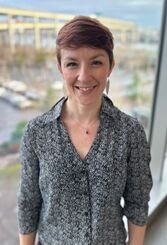
Lilli Klug, PhD
Lilli Klug, PhD is a trained cancer biologist with a passion for project management and facilitation of scientific teams. Lilli received her PhD from the Cancer Biology Program at OHSU in 2017 and worked as a researcher and research project manager in the lab of Dr. Michael Heinrich (OHSU/VAHMC) studying gastrointestinal stromal tumor. In 2022, Lilli joined at Absci, a drug creation biotech in Vancouver, WA where she worked as a scientific program manager on Absci's AI-oriented R&D programs. Lilli is passionate about empowering those that have been historically marginalized or excluded from STEM careers and she served on the Board of Directors for the non-profit organization Women in Science- Portland for 5+ years, serving as president from 2020-2023. She still volunteers with the organization, specifically developing and facilitating a Women in Leadership course offered by the organization. In her free time, Lilli enjoys bouldering, playing and watching soccer, hiking, yoga, cooking, and spending time with family, friends, and her two tiny dogs. Lilli is excited to be a part of the Biofabrication Hub and the research community here at CEDAR/ Knight Cancer Institute.
Lilli Klug, PhD is a trained cancer biologist with a passion for project management and facilitation of scientific teams. Lilli received her PhD from the Cancer Biology Program at OHSU in 2017 and worked as a researcher and research project manager in the lab of Dr. Michael Heinrich (OHSU/VAHMC) studying gastrointestinal stromal tumor. In 2022, Lilli joined at Absci, a drug creation biotech in Vancouver, WA where she worked as a scientific program manager on Absci's AI-oriented R&D programs. Lilli is passionate about empowering those that have been historically marginalized or excluded from STEM careers and she served on the Board of Directors for the non-profit organization Women in Science- Portland for 5+ years, serving as president from 2020-2023. She still volunteers with the organization, specifically developing and facilitating a Women in Leadership course offered by the organization. In her free time, Lilli enjoys bouldering, playing and watching soccer, hiking, yoga, cooking, and spending time with family, friends, and her two tiny dogs. Lilli is excited to be a part of the Biofabrication Hub and the research community here at CEDAR/ Knight Cancer Institute.
